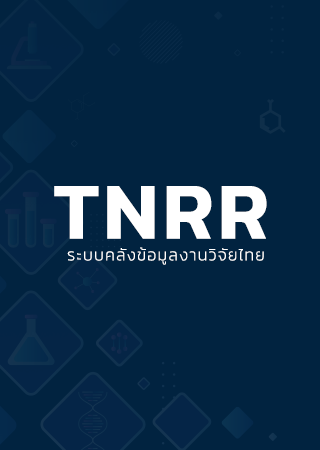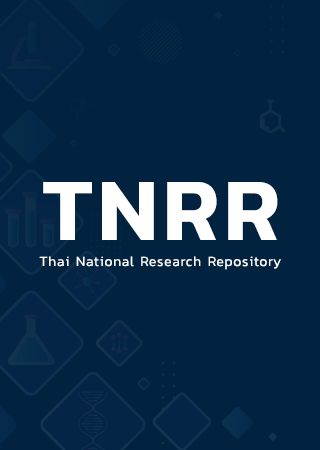Description
โครงการวิจัย เรื่อง การสร้างภูมิคุ้มกันด้านการเงินการคลังของภาครัฐเพื่อรับมือวิกฤตที่ท้าทาย ในอนาคต มีวัตถุประสงค์เพื่อศึกษาแนวคิดทฤษฎีในการดาเนินนโยบายด้านการเงินและการคลังของภาครัฐ ในช่วงวิกฤต เพื่อถอดบทเรียนมาตรการด้านการเงินการคลังของประเทศต่างๆ และเพื่อให้ทราบจุดเด่น และ จุดอ่อนในการดาเนินการของไทยที่ผ่านมาเพื่อปรับปรุงแก้ไขมาตรการต่างๆ ในอนาคต โดยคณะผู้วิจัยได้คัดเลือก โครงการ/มาตรการตัวอย่าง เพื่อประเมินตามเกณฑ์การประเมินผลโครงการ 6 ด้าน ขององค์การเพื่อความร่วมมือ ทางเศรษฐกิจและการพัฒนา (OECD) โดยใช้ข้อมูลทั้งปฐมภูมิและทุติยภูมิประกอบการประเมินจากการวิจัยพบว่า เมื่อเผชิญวิกฤต ประเทศต่างๆ จะดาเนินนโยบายการเงินและการคลังควบคู่กันไป แต่ศักยภาพในการรับมือวิกฤตของประเทศจะขึ้นอยู่กับพื้นที่ของนโยบายที่ยังคงเหลืออยู่ และจากการศึกษา มาตรการด้านการเงินการคลังเพื่อรองรับวิกฤตการณ์การระบาดของ COVID-19 ของประเทศต่างๆ พบว่า รูปแบบ ของมาตรการส่วนใหญ่จะคล้ายคลึงกัน โดยให้ความสาคัญกับมาตรการด้านสาธารณสุข และการช่วยเหลือ ประชาชนและภาคธุรกิจที่ได้รับผลกระทบเป็นลาดับแรก ส่วนประเทศที่พัฒนาแล้วจะมีมาตรการฟื้นฟูเศรษฐกิจ ภายหลังวิกฤต COVID-19 ที่เป็นแผนระยะยาวเพิ่มเติมที่ชัดเจน สาหรับนโยบายการเงิน (Monetary Policy) จะให้ความสาคัญกับนโยบายผ่อนคลายด้านการเงิน (Easing Monetary Policy)สาหรับการประเมินโครงการ/มาตรการของไทยเพื่อถอดบทเรียนพบว่า มาตรการด้านการคลังด้าน การแพทย์และสาธารณสุข และการช่วยเหลือเยียวยาผู้ที่ได้รับผลกระทบซึ่งส่วนใหญ่เป็นมาตรการระยะสั้น ก่อให้เกิดประสิทธิผลและผลกระทบได้ตามเป้าหมาย แต่ไม่สอดคล้องกับการเกณฑ์ประเมินด้านความยั่งยืน ในขณะที่โครงการเพื่อการฟื้นฟูเศรษฐกิจและสังคมส่วนใหญ่ซึ่งเป็นโครงการระยะยาว ไม่สามารถดาเนินการได้ ตามเป้าหมายเนื่องจากระยะเวลาดาเนินโครงการมีจากัด สาหรับมาตรการด้านการเงินภายใต้ พ.ร.ก. Soft Loan และ พ.ร.ก. BSF สามารถดาเนินการได้ตามวัตถุประสงค์ โดยมีส่วนช่วยสนับสนุนสภาพคล่องให้กับธุรกิจเพื่อให้ ดาเนินการต่อไป รวมทั้งสร้างความเชื่อมั่นให้แก่นักลงทุนและผู้ร่วมตลาด ทาให้ตลาดการเงินไทยมีเสถียรภาพคณะผู้วิจัยได้จัดทาข้อเสนอแนะเชิงนโยบายเพื่อสร้างภูมิคุ้มกันด้านการเงินการคลังเพื่อรองรับวิกฤต ในอนาคต โดยภาครัฐจะต้องให้ความสาคัญกับการสร้างสภาพแวดล้อม (Ecosystem) ที่เหมาะสม ดังนี้ (1) ผู้กาหนดนโยบายควรออกแบบมาตรการที่มีความยืดหยุ่น มีการกระจายอานาจการตัดสินใจ (Decentralization) รวมทั้งจัดกลุ่มมาตรการเพื่อแก้ไขผลกระทบที่เกิดขึ้นจากวิกฤตในระยะต่างๆ (สั้น/กลาง/ยาว) เพื่อให้มาตรการ ระยะยาวสามารถดาเนินการได้โดยไม่ติดข้อจากัด (2) หน่วยงานปฏิบัติควรจัดทาโครงการ โดยคานึงถึงผู้ได้รับ ผลกระทบให้ครบถ้วน และเลือกใช้เครื่องมือที่เหมาะสม นาระบบเทคโนโลยีสารสนเทศมาใช้เพื่อเพิ่ม ประสิทธิภาพ รวมทั้งจัดเตรียมชุดโครงการ ซึ่งมีการจัดลาดับความสาคัญ (Priority) ไว้ เพื่อให้ดาเนินการได้เร็ว และก่อให้เกิดประโยชน์ในลักษณะ Quick Win (3) การสร้างกลไกการขับเคลื่อนมาตรการในภาวะวิกฤต โดย ส่งผ่านกรอบนโยบายลงสู่หน่วยงานผู้ปฏิบัติในเชิงรุก จัดให้มีศูนย์กลางฐานข้อมูลภาครัฐและบูรณาการทางาน ของหน่วยงานภาครัฐ และ (4) การเตรียมความพร้อมด้านการเงินการคลังเพื่อรองรับวิกฤตในด้านต่างๆ เช่น การพัฒนาแพลตฟอร์มภาครัฐเพื่อเป็นโครงสร้างพื้นฐานที่เชื่อมโยงภาคส่วนต่างๆ ที่เกี่ยวข้องในการบริหาร จัดการสถานการณ์วิกฤต รวมทั้งการสร้างความเข้มแข็งของภาคการเงินการคลัง และการปรับโครงสร้าง ทางเศรษฐกิจที่เหมาะสม เพื่อเตรียมการรองรับความเสี่ยงและตอบสนองต่อสถานการณ<br><br>A research titled Strengthening the Government Financial Immunity for the Future Crises has the objectives to study the theories of government’s monetary and fiscal policies and countries’ experience during the crisis to identify lessons learned from policy implementation, as well as the strengths and weaknesses of Thai government measures implemented during the COVID-19 crisis, in order to strengthen the operational capacity to respond under the future crises. In this regard, the representatives of projects and measures were evaluated based on evaluation criteria defined by the Organization for Economic Co- operation and Development (OECD) DAC Network, using both primary and secondary data.From the research, it was found that in the face of crisis, countries tend to go hand in hand with monetary and fiscal policies. However, the capacity of policy responses depend on the country’s fiscal space available. In addition, based on the monetary and fiscal measures to cope with the COVID-19 outbreak, the format of measures in most countries were similar focusing on public health and financial support for affected people and businesses. As for developed countries, there are also long-term plans for reviving the economy after the COVID-19 crisis. In terms of monetary policy, most countries focused on expansionary monetary policy during the crisis.The results of the study showed that fiscal measures for healthcare expenses and remedial assistance to those affected, which are mostly short-term, were very effective, nevertheless, the sustainability criteria are not relevant to these measures. While most of long-term socioeconomic rehabilitation projects were unable to reach their objectives due to time constraints. For the financial measures under the Soft Loan and BSF emergency decrees, they were implemented in line with the objectives by supporting the liquidity of SMEs, and maintaining the confidence of investors and market participants in order to stabilize national financial markets.We made the policy recommendations to build-up the fiscal resilience for future crises that the government should focus on creating a suitable environment (ecosystem) as follows: (1) Policymakers should design flexible measures with decentralized decision-making process, including phasing crisis mitigation measures into short-/medium-/long-term measures, so that long-term measures can be implemented without restrictions, (2) The implementing agencies should prepare set of priority projects by considering all those affected and applying right tools and IT systems to increase efficiency. Moreover, a set of priority projects should function quickly and be useful at proper time, (3) Establishing a mechanism for conducting measures during crisis through proactive policy transmissions from policymakers to implementing units and set up a central government data center to integrate all government agencies, and (4) Financial and fiscal preparedness for crisis in several areas, such as the development of government electronic platforms to serve as infrastructures that link related departments to deal with crisis situations, the preventive measures to strengthen the fiscal and financial sectors, and the appropriate economic restructuring for the risk and situational response.
Date of Publication :
02/2023
Publisher :
สำนักงานการวิจัยแห่งชาติ (วช.)
Category :
รายงานการวิจัย
Total page :
77012 pages
People Who Read This Also Read


